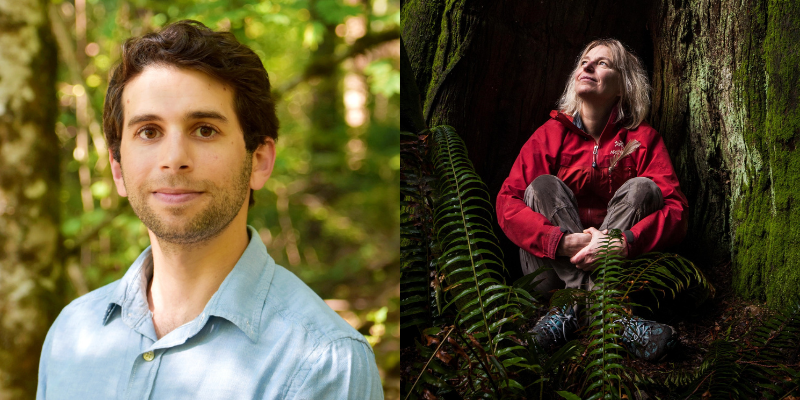Town Hall Seattle and Washin Kai present
David Spafford with Paul Atkins
Binging Shogun: Can Historical Fiction Be Good for History?

Bringing the Earth to Life
Note: Town Hall events are approximately 75 minutes long.

How much of our own planet do we actually understand? One of humanity’s oldest beliefs is that our world is alive. Though once ridiculed by some scientists, the idea of Earth as a vast interconnected living system has gained acceptance in recent decades.
In author Ferris Jabr’s new book Becoming Earth: How Our Planet Came to Life, Jabr examines the connections between life and geology through the many ways that living creatures, including our own species, have transformed the atmosphere, oceans, and continents throughout the planet’s history. Becoming Earth explores ecosystems, discussing plants, weather, animal engineering, the microscopic and the microbial. Additionally, Jabr scrutinizes the human impact on Earth, noting the ways that people have altered existence through fossil fuel consumption, agriculture, and pollution.
Drawing on recent scientific insights, the book reexamines the ancient idea that Earth itself is alive and investigates how this holistic perspective can help us restore longstanding ecological rhythms and possibly mitigate some of the worst outcomes of the climate crisis. From an experimental nature reserve in remote Siberia, to the heart of the Amazon rainforest, to a gold mine-turned-research lab a mile below the Earth’s surface, Jabr invites readers to journey around the world to better understand our planet and our role in it.
Ferris Jabr is a contributing writer for The New York Times Magazine. He has also written for The New Yorker, Harper’s, The Atlantic, National Geographic, and Scientific American. He is the recipient of a Whiting Foundation Creative Nonfiction Grant and fellowships from UC Berkeley and MIT. His work has been anthologized in several editions of Best American Science and Nature Writing. Ferris Jabr lives in Portland, Oregon, with his husband, Ryan, their dog, Jack, and more plants than they can count.
Dr. Suzanne Simard is a Professor of Forest Ecology at the University of British Columbia and leader of both The Mother Tree Project and Mother Tree Network. She is known worldwide for her pioneering research on how trees interact with one another and communicate using below-ground fungal networks. Her NYT-bestselling memoir, Finding The Mother Tree: Discovering the Wisdom of the Forest, won the 2023 Lewis Thomas Prize in recognition of its innovative fusion of science and the humanities. Most recently, Time magazine named her one of the most influential people of 2024.
Presented by Town Hall Seattle.
Town Hall Seattle and Washin Kai present
Binging Shogun: Can Historical Fiction Be Good for History?
Man Up: The New Misogyny
One Must Imagine Medusa Happy